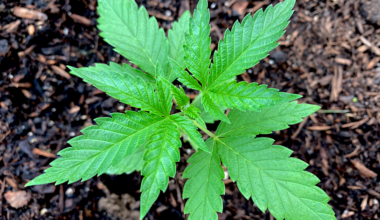Organizers in Idaho have filed a proposed 2024 ballot initiative that would legalize medical marijuana. If the measure qualifies and is approved by voters, patients with qualifying conditions would be able to purchase cannabis at state-licensed dispensaries, and those unable to access or afford dispensaries could grow up to six plants at home.
The Kind Idaho campaign submitted initial paperwork to the secretary of state’s office on Tuesday, writing in their cover letter that the would-be initiative, titled the Idaho Medical Marijuana Act, “is essentially identical” to one the group filed two years ago but which did not end up making the ballot.
“Now the waiting game begins,” Joseph Evans, the group’s treasurer, said in a video posted to Facebook from the state Capitol steps after filing the measure. “We will be in contact again in five weeks when we come in to pick up and review the changes the [attorney general] suggests.”
As filed, the prospective ballot measure would:
Allow access to cannabis for registered patients with chronic diseases or conditions, or for people with a terminal illness who doctors say have less than a year to live. Fees for one-year registration cards could not exceed $100.
Allow qualified patients or caretakers to possess up to four ounces of marijuana, defined as all parts of the cannabis plant, including derivatives, containing “any of the chemical substances classified as tetrahydrocannabinols” (THC).
Enable patients or their caregivers who qualify for a “hardship cultivation designation” to grow up to six cannabis plants in an enclosed, locked facility. Hardship designations would be granted based on financial hardship, inability to travel to a dispensary or the lack of a dispensary near a patient’s home.
Qualify patients with cancer, glaucoma, HIV or AIDS, hepatitis C, ALS, Chron’s disease, Alzheiemer’s disease, PTSD, inflammatory bowel disease, Huntington’s disease or Tourette syndrome. Patients would also be eligible with any medical condition or treatment that produces cachexia or wasting syndrome, severe or chronic pain, severe nausea, seizures, or persistent muscle spasms. Further qualifying conditions could be added by regulators, including in response to a petition from any Idaho resident.
License medical marijuana retail dispensaries, production facilities, and safety compliance facilities. Applications would be evaluated based on a ranked scoring system, and facilities could not be located within 1,000 feet of schools.
Establish a 4 percent excise tax on cannabis sales to patients or caregivers. After covering the costs of the program, half the remaining proceeds would go to the Idaho Division of Veterans Services, and the other half would flow into the state’s general fund.
Empower the Department of Health and Welfare to license and regulate the state’s medical marijuana program, requiring it to adopt rules within 120 days of the measure becoming law.
Cities and counties could also set their own zoning ordinances and regulations.
Allow medical marijuana cardholders from other states to access the program.
Prohibit certain forms of discrimination against cannabis patients, or others involved in legal cannabis conduct, in education, housing, state and local gun laws, medical care and employment. Under state law surrounding discrimination, marijuana would be treated similarly to prescribed pharmaceuticals.
Jackee Winters, chair of Kinda Idaho, said in the video posted Tuesday that the group’s focus now is fundraising and recruiting volunteers ahead of a signature-gathering campaign expected to kick off in November.
“We need black pens and legal paper,” Winters said, “and you can make your donations at Idaho Central Credit Union.”
Kind Idaho said it struggled to find a convenient way to accept campaign donations given the current illegality of cannabis. “None of the banks really want to work with us,” Evans said. “None of the fundraising organizations want to work with us. PayPal won’t work with us.”
The same group submitted an effort to put medical marijuana on the state ballot this year, but organizers later said they didn’t collect enough signatures. Kind Idaho says it’s optimistic the current effort will be more fruitful, however.
“Be ready,” Evans said in another video posted Tuesday. “Be prepared. You’re gonna make this happen this year. All the roadblocks from the past year are done and gone with.”
Efforts to let Idaho voters weigh in on cannabis reform have struggled in recent years, due in part to efforts by state officials to make it harder to qualify ballot initiatives.
In 2020, during the early months of the COVID pandemic, organizers at the Idaho Cannabis Coalition asked the secretary of state for permission to collect signatures electronically, as was being temporarily permitted under a federal judge’s order in a separate campaign. State officials, however, rejected the request.
Lawmakers the following year attempted to block marijuana legalization preemptively, even if voters were to approve it at the ballot. The Senate passed a bill declaring that “the production, manufacture, transportation, sale, delivery, dispensing, distribution, possession, or use of a psychoactive drug shall not be permitted in the state of Idaho.” That measure later died in the House.
Lawmakers also passed a law that restricted the petitioning process for putting initiatives on the ballot, but state Supreme Court struck down the law last August.
Another reform proposal, which would have legalized possession of up to three ounces of cannabis by adults 21 and older at their own homes, was cleared for signature-gathering in July 2021. But by January of this year, again facing a surge of COVID cases, longtime reform advocate and campaign spokesman Russ Belville said organizers would suspend signature-gathering in the interest of public health.
Idaho organizers aren’t the only ones already getting a head start to gear up to put cannabis measures before voters in 2024.
In Wyoming, activists behind proposed decriminalization and medical marijuana reforms said in January that they would focus their energy on 2024 after failing to collect enough signatures for this year’s ballot amid weather conditions, procedural delays and the ongoing pandemic.
In Florida, an industry-led campaign backed by the state’s largest existing medical cannabis company, Trulieve, is trying to qualify an adult-use legalization initiative for 2024. If approved, the measure would allow existing medical cannabis companies like Trulieve to begin selling marijuana to all adults over 21. It contains a provision that would allow—but not require—lawmakers to take steps toward the approval of additional businesses. Home cultivation by consumers would not be allowed under the proposal as drafted.
In Ohio, an effort to put adult-use legalization on the statewide ballot fizzled out this year, but the campaign did secure a procedural legal win that will allow them to hit the ground running for a planned 2023 reform initiative.
Meanwhile, several states are set to vote on marijuana and drug policy reform ballot measures this November.
North Dakota voters will have the chance to decide on marijuana legalization at the ballot this November, the secretary of state’s office confirmed.
In neighboring South Dakota, a marijuana legalization initiative has again qualified for the ballot.
The Arkansas Supreme Court recently ordered the secretary of state’s office to certify a marijuana legalization initiative for the November ballot—but there’s a chance that the votes will not end up being counted, depending on the final outcome of a pending legal challenge.
Maryland elections officials have finalized the language for a marijuana legalization referendum that lawmakers placed on the November ballot, and have issued a formal summary of the reform proposal.
Missouri’s secretary of state certified that activists turned in more than enough signatures to qualify a marijuana legalization initiative for the November ballot.
Colorado voters will have the chance to decide on a historic ballot initiative this November to legalize psychedelics and create licensed psilocybin “healing centers” where people can use the substance for therapeutic purposes.
The Oklahoma attorney general revised the ballot title of a marijuana legalization initiative that activists hope will be certified to go before the state’s voters, making mostly technical changes that the campaign views as satisfactory.
Nebraska advocates recently submitted signatures for a pair of medical cannabis legalization initiatives. The campaign has faced several challenges along the way, including the loss of critical funding after a key donor passed away and a court battle of the state’s geographic requirements for ballot petitions.
Michigan activists announced in June that they will no longer be pursuing a statewide psychedelics legalization ballot initiative for this year’s election and will instead focus on qualifying the measure to go before voters in 2024.
The campaign behind an effort to decriminalize drugs and expand treatment and recovery services in Washington State said in June that it has halted its push to qualify an initiative for November’s ballot.
In March, California activists announced that they came up short on collecting enough signatures to qualify a measure to legalize psilocybin mushrooms for the state’s November ballot, though they aren’t giving up on a future election cycle bid.
Meanwhile, there are various local reforms that activists want to see voters decide on this November—including local marijuana decriminalization ordinances in Ohio, West Virginia and Texas.
Wisconsin voters in at least half a dozen cities and counties will be asked on November’s ballot whether they support legalizing, taxing and regulating cannabis in a manner similar to alcohol. Those advisory questions will be non-binding, however, and are intended to take the temperature of voters and send a message to lawmakers about where their constituents stand.
Photo courtesy of Carlos Gracia
Medical Disclaimer:
The information provided in these blog posts is intended for general informational and educational purposes only. It is not a substitute for professional medical advice, diagnosis, or treatment. Always seek the advice of your physician or other qualified healthcare provider with any questions you may have regarding a medical condition. The use of any information provided in these blog posts is solely at your own risk. The authors and the website do not recommend or endorse any specific products, treatments, or procedures mentioned. Reliance on any information in these blog posts is solely at your own discretion.






